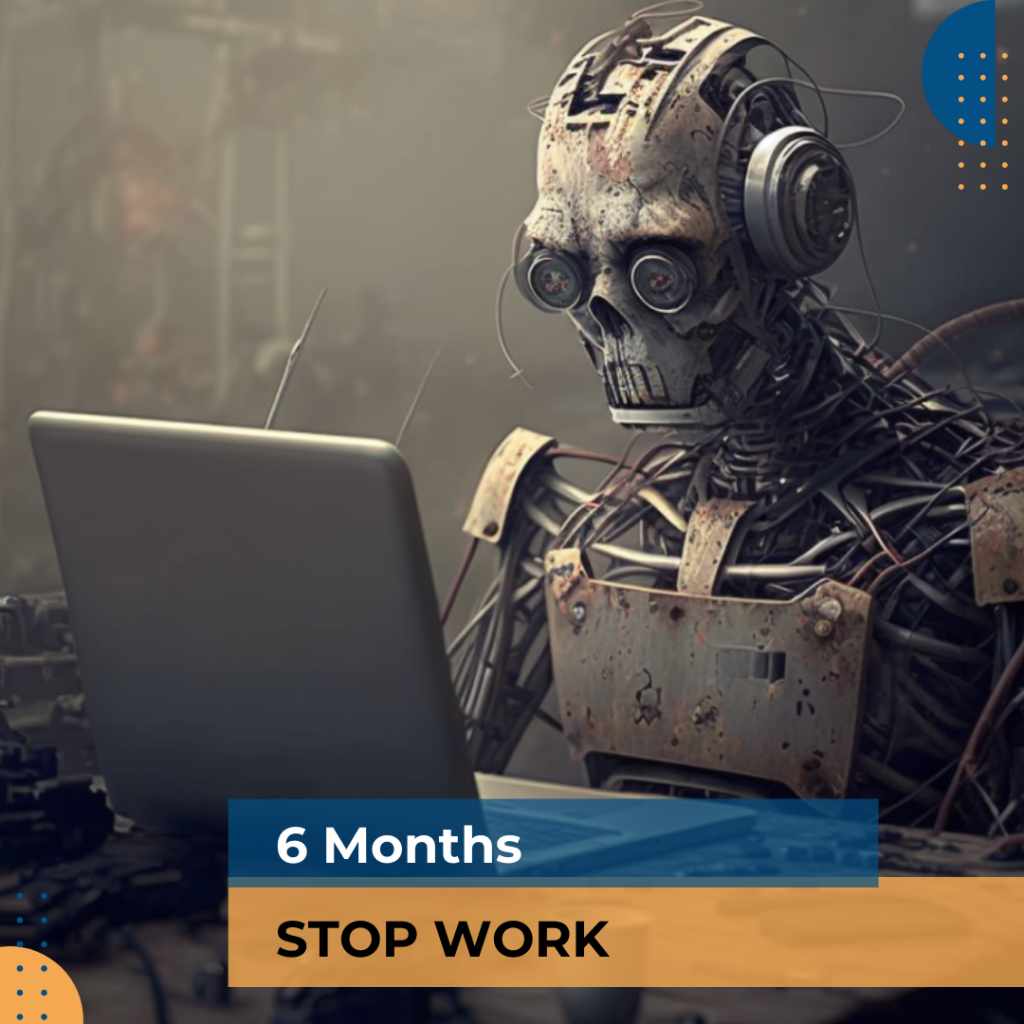The recent suggestion of pausing AI development for six months has stirred up quite a debate. I believe that while the intentions behind this proposal may be good, it may not be the most practical solution for addressing the concerns surrounding AI development.
The term “AI” (artificial intelligence) is often debated. In my view, these technologies are not entirely artificial or intelligent, as they are ultimately created and monitored by humans. As Sam Altman, CEO of OpenAI, mentioned in an interview a couple of years ago, human responsibility is crucial when it comes to AI development.
I believe we must manage risks, just as we do in any industry with new developments. Therefore, I find it puzzling that some influential figures are suddenly advocating for a pause in AI development.
It makes me wonder if certain industry leaders are worried about being left behind, particularly when we haven’t seen significant contributions from Elon Musk or Steve Wozniak in the language model space. Imposing a six-month pause on large-scale players could inadvertently offer opportunities for smaller companies and even the underground industry to progress without the necessary safeguards in place.
Moreover, the concern that AI will lead to job displacement is valid. However, I believe it is not AI itself but rather the people using AI who are in a position to replace jobs. We should focus on upskilling our workforce and teaching them how to use these technologies to make their jobs easier and more efficient. The unknown in this equation is actually how many jobs will AI create?
In addition, I find it hard to envision how a pause in AI development could be regulated and monitored. The race to advance AI is well underway, and the coming decade promises groundbreaking breakthroughs. I think the real challenge lies in learning to use this technology effectively, as it is only as smart as the humans employing it. AI has the potential to enhance human intelligence by stimulating creativity and originality, but it cannot generate original ideas without human guidance and direction.
In conclusion, my personal opinion is that although a pause in AI development may seem like a sensible measure, it is crucial to consider the potential consequences and explore alternative methods to manage AI’s rapid growth. Human involvement and responsibility are paramount in ensuring that AI technology does not misdirect our future development. Instead of halting progress, I believe we should focus on fostering a collaborative, responsible approach to AI that maximizes its potential while minimizing the risks.
If you would like to read the letter that was released this week, then go to this link. At the time of writing there were 1738 signatures to the letter that has made worldwide headlines this week
Pause Giant AI Experiments: An Open Letter


